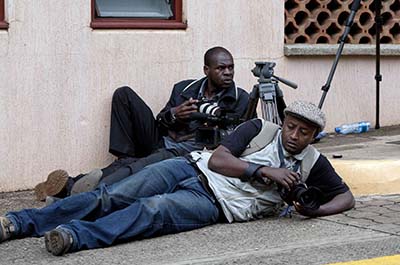
Covering Westgate
The jumpy, cell phone clips of journalists and security officers crouching outside the upscale Westgate Shopping Mall in the capital, Nairobi, permeated the TV screens across Kenya for four days. Edgy local and foreign reporters hid behind vehicles as gunfire shots, repeated explosions and smoke emanated from a supermarket inside.
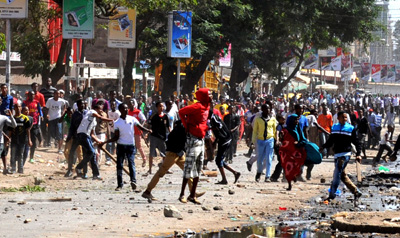
Exiled journalists in risky places need helping hand
It was well past mid-day in Eastleigh, a shanty district on the east side of Nairobi, Kenya. The billows of dust rising from the rock-scarred road showed a government that had long lost interest in the neighborhood. A young man, struggling with horribly dry conditions, was fighting with his patrons. “Welahi, today’s khat is so…
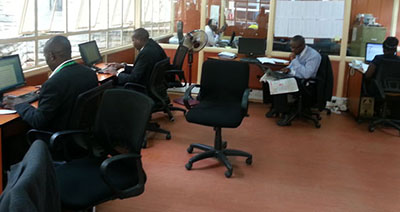
Kenyan journalists kicked out of Parliament media center
News coverage of the Kenyan Parliament elected in March 2013 is off to a rocky start. The press last week was kicked out of the media center in the National Assembly, and although the speaker tried to make assurances that overall access won’t be affected, journalists are wary.
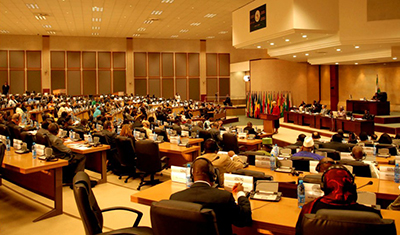
Press freedom: Challenge of changing words into deeds
The Pan African Parliament’s (PAP) launch of a media freedom campaign through a “Dialogue on Media Freedom in Africa” in mid-May marks an important and welcome starting point. For too long, media freedom has been divorced from the debate around development and democratization when it has an integral role to play in promoting transparency, underpinning…
Kenyan press face hostile work environment, study finds
The working environment for journalists and media workers in Kenya is increasingly hostile, with at least 91 percent of journalists at local media outlets having faced security threats in the course of their work, a new study has revealed. The harassment of and attacks against journalists, with nearly 40 percent coming from politicians, indicates a…
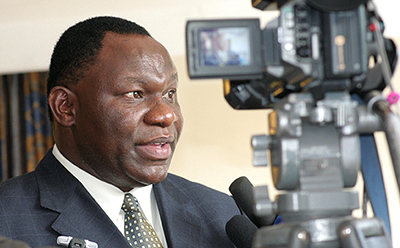
New challenges for local and foreign press in Kenya
Kenya has passed peacefully through its election period, but questions still hang over the legitimacy of presidential candidate Uhuru Kenyatta’s victory–as well as over the future of the country’s media coverage. During polling, challenges arose for both local and international media, and they have not subsided. For the foreign press, it is now unclear how…
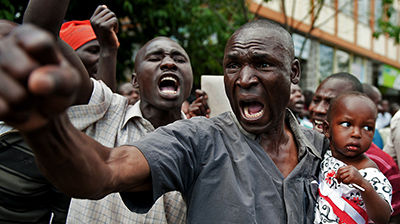
In tense climate, Kenyan press can draw on solidarity
Amid a tense presidential election, Kenyans have avoided a repeat of the deadly violence that followed the vote in 2007, when half a million people were uprooted and more than 1,000 people were killed. Still, the situation today is fraught. Ethnic identity dominates the nation’s political divisions–and those same loyalties can undermine solidarity in the…

Journalists relieved, wary amid Kenyan elections
Journalists could be seen rushing from polling station to polling station Monday to see long queues of determined Kenyan voters in what was apparently a largely peaceful election, according to the Deputy Director of Kenya’s statutory media council, Victor Bwire. But leading up to the vote, many journalists worked in a climate of fear; and…
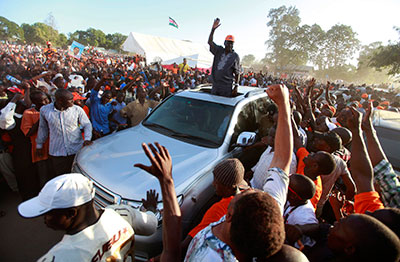
As Kenya votes, journalists must take precautions
Election-related violence is a worry for journalists in many countries, but perhaps nowhere more so than Kenya, where presidential polls will be held March 4. In the aftermath of the nation’s last presidential elections in 2007, over one thousand people were killed in ethnic and political violence, live news broadcasts were banned, and the press…
Journalist Assistance helps record number in 2012
An increase in press freedom violations last year created a surge of need among journalists, driving a record number of assistance cases for CPJ’s Journalist Assistance Program in 2012. More than three-quarters of the 195 journalists who received support during the year came from East Africa and the Middle East and North Africa, reflecting the…